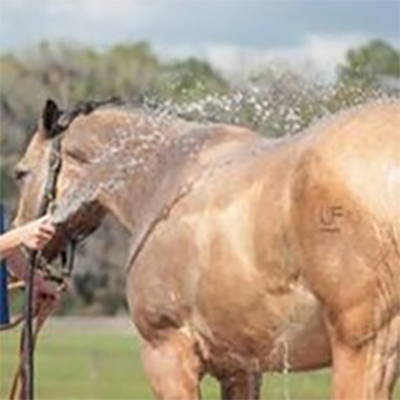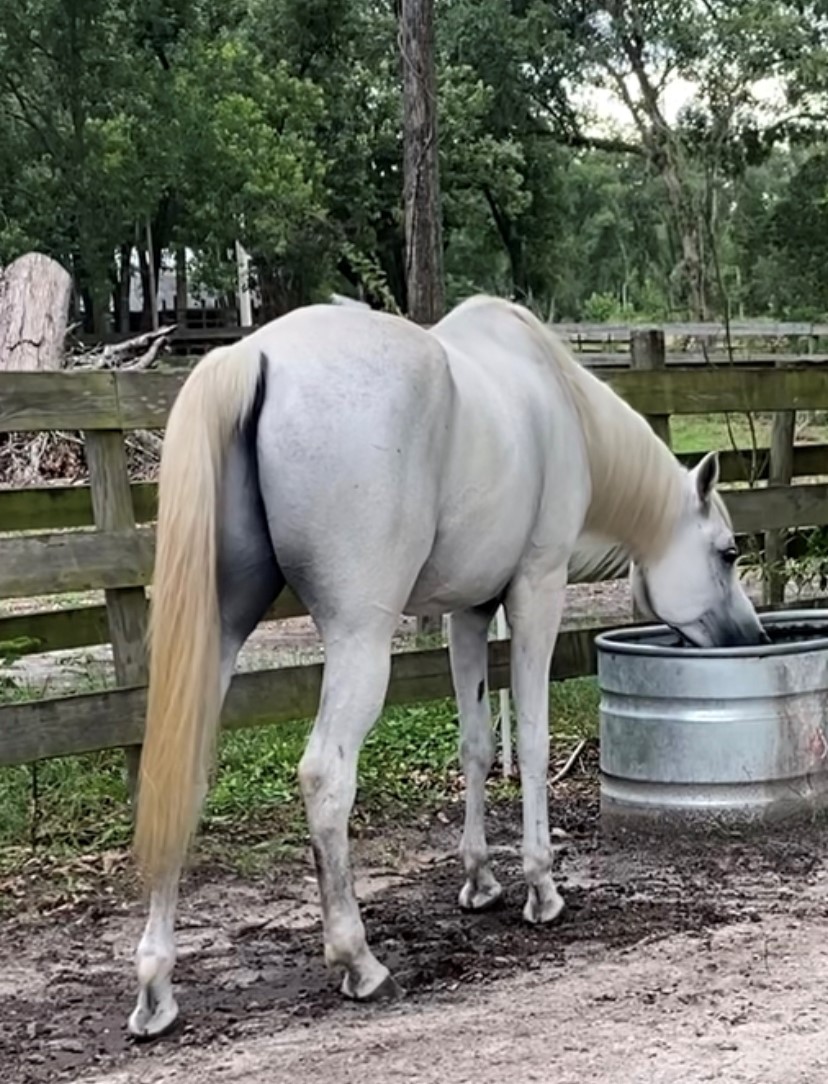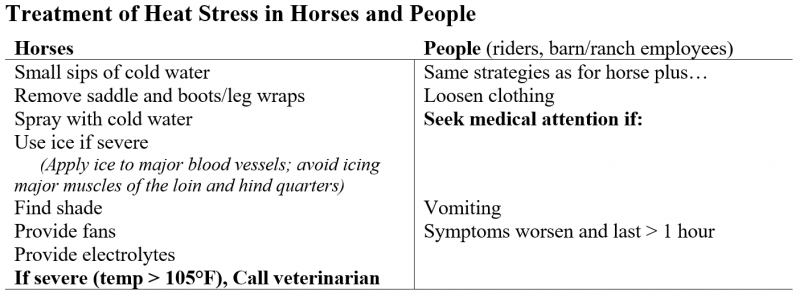Carissa Wickens, UF/IFAS Extension Equine Specialist, Department of Animal Sciences

Hosing off your horse with cold water during the hottest part of the day will help keep it more comfortable. Cold hosing is also an important treatment strategy for heat stress and for horses with anhidrosis (non-sweaters). Credit: Dr. Laura Patterson-Rosa.
During the summer months in Florida, we expect periods of high heat and humidity, but exposure to extreme temperatures when the heat index (how hot it really feels when the effects of humidity are added to high temperature) repeatedly climbs above 100 degrees can make living conditions uncomfortable with negative impacts on animal and human health. With continued hot weather this month and into the early fall, it remains important to monitor horses for signs of heat stress and to implement management strategies that will help keep horses and people (owners, farm/ranch employees) safe by reducing the risks of heat-related illness.
=

Electrolytes specifically made for horses and in consultation with your veterinarian are recommended. It is important for horses to have access to water after administering electrolytes.
=

Free choice access to cool, clean water and providing access to white salt will encourage normal drinking behavior. Credit: Carissa Wickens, UF/IFAS
Tips for Trailering Horses in Hot Weather
If you need to transport your horses to an event or offsite to work cattle, plan to travel during the coolest parts of the day (early morning or later in the evening). Provide as much ventilation and air flow as safely possible while on the road (allowing horses to extend their heads out of trailer windows is not advised). When hauling foals, be especially careful as they are more susceptible to heat stress than mature horses.
=
Things to Remember
Heat and humidity make it difficult for the horse to cool itself, as these conditions limit the horse’s ability to reduce body temperature through evaporative cooling mechanisms. Keeping horses well hydrated is key. Horses that are not drinking enough are likely to show a decline in performance and are at increased risk of colic and poor organ function. Free choice access to cool, clean water and providing access to white salt will encourage normal drinking behavior. Cleaning and refilling troughs frequently and keeping water sources out of direct sunlight will help maintain cooler water temperatures and prevent growth of bacteria and algae. If your horse will not readily consume salt from a block or lick, salt can be top dressed on the horse’s feed.
Use of fans and misters can also help keep horses more comfortable during periods of extreme heat. Avoid riding and working horses when the temperature + the relative humidity exceeds 180. For example, if the actual temperature is 96 degrees and relative humidity is 85% (96+85 = 181). These same conditions would correspond to a heat index of 145 (National Weather Service Heat Index Calculator). During hot weather, make sure you are also following good self-care measures and monitoring others (friends, family members, & co-workers) for signs of heat stress too.=
=
References:
Laura Patterson-Rosa, Martha F. Mallicote, Robert J. MacKay, and Samantha A. Brooks. 2020. Anhidrosis in the horse (non-sweaters) – What do we know?
Summer care for horses. Saundra TenBroeck. 2021. UF/IFAS Northwest District, Panhandle Agriculture News.
Carey Williams. Infographic available for download: Extinguishing heat stress for the horse and rider.
Steven M. Haugen. 2016. Heat stroke. American Association of Equine Practitioners.
- Paying Attention to What Comes Out:Forage Transitions and Free Fecal Water Syndrome in Horses - August 2, 2024
- Feeding Horses Grazing Bahiagrass Pastures for Maintenance with Minimal or Light Exercise - August 25, 2023
- Corneal Ulcers in Horses: The Importance of Keeping an Eye on Your Horse’s Eyes - May 5, 2023


